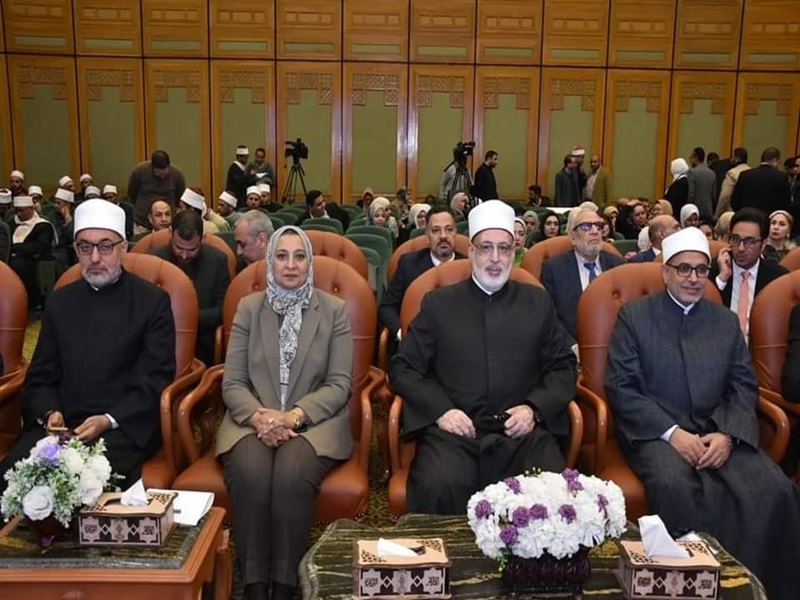Recommendations of the Eleventh International Conference of the Center for Papyrus and Inscriptions Studies at the Faculty of Archeology “Archaeology and Astronomy in Human Civilizations”
On Monday, February 12, the activities of the eleventh international conference of the Center for Papyrus and Inscription Studies at the Faculty of Archaeology, entitled “Archaeology and Astronomy in Human Civilizations,” which was held in cooperation with the Islamic Research Academy of Al-Azhar Al-Sharif, represented by the Al-Azhar International Center for Forensic Astronomy and Space Sciences at the complex, concluded. The scientific sessions continued over two days, under the generous patronage of His Eminence the Grand Imam Prof. Ahmed Al-Tayeb - Sheikh of Al-Azhar, Prof. Mohamed Diaa Zain El-Abedeen, President of Ain Shams University, under the supervision of Prof. Muhammad Al-Duwaini, Undersecretary of Al-Azhar Al-Sharif, Prof. Ghada Farouk, Vice President of the University for Community Service and Environmental Development, and the presidency of Prof. Nazir Ayyad, Secretary-General of the Islamic Research Academy, Prof. Hossam Tantawi, Dean of the Faculty of Archaeology.
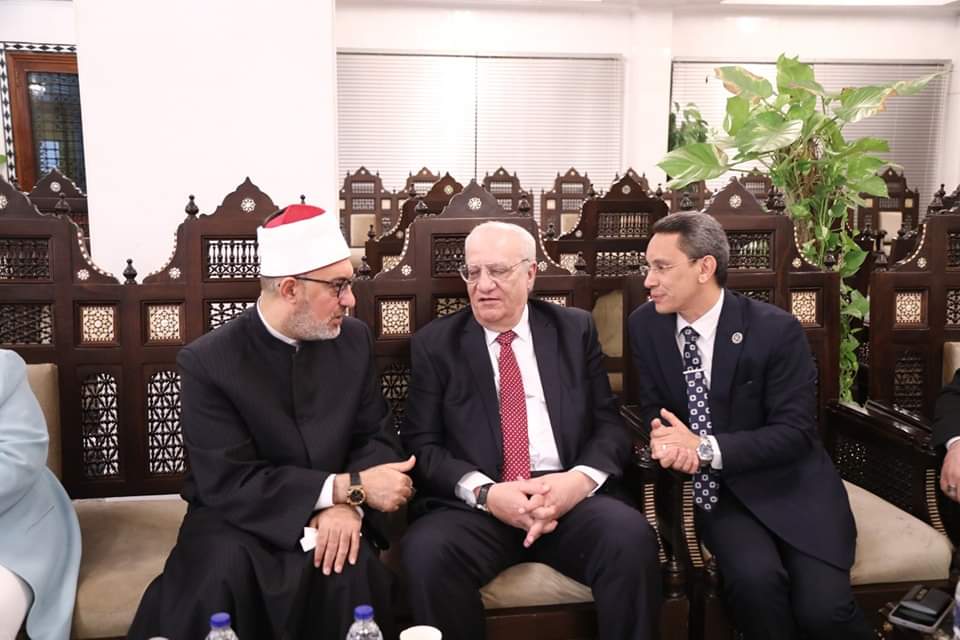 |
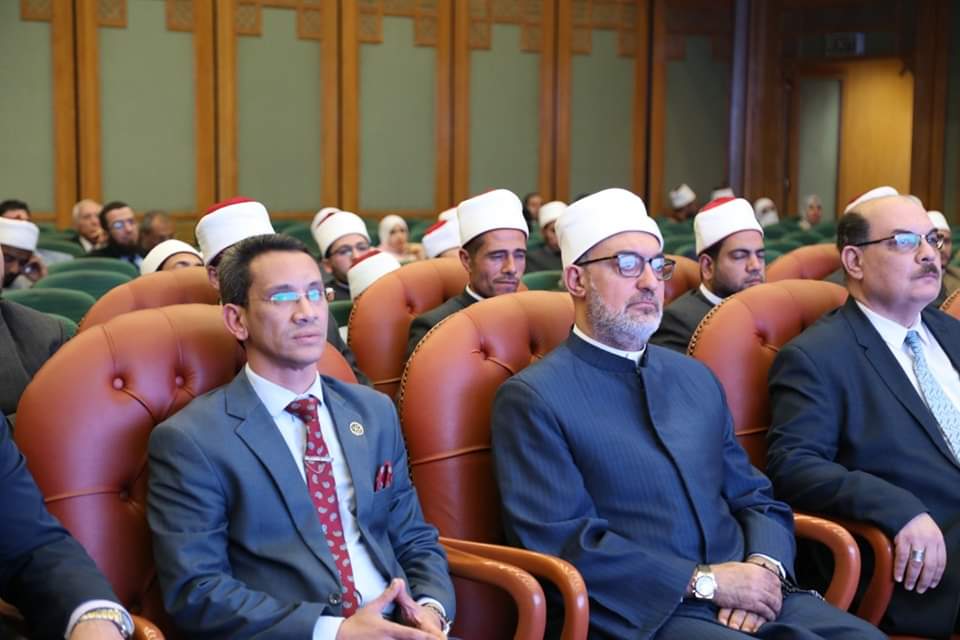 |
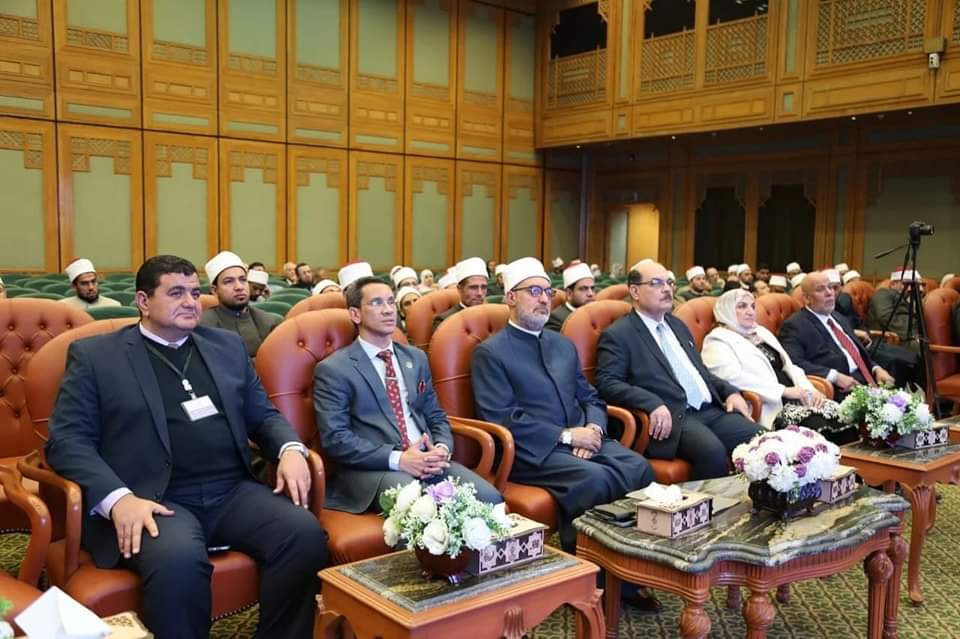 |
||
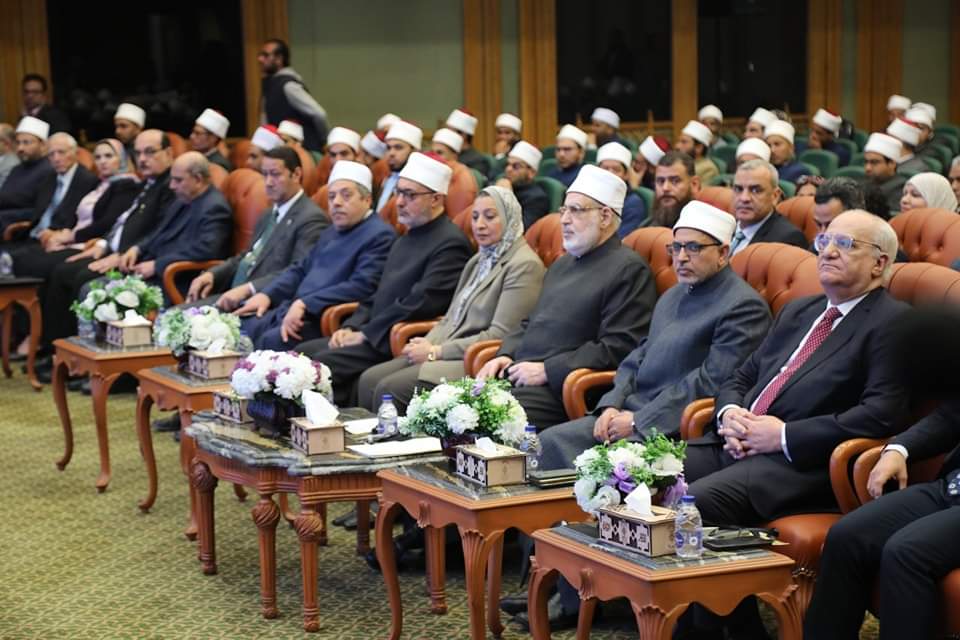 |
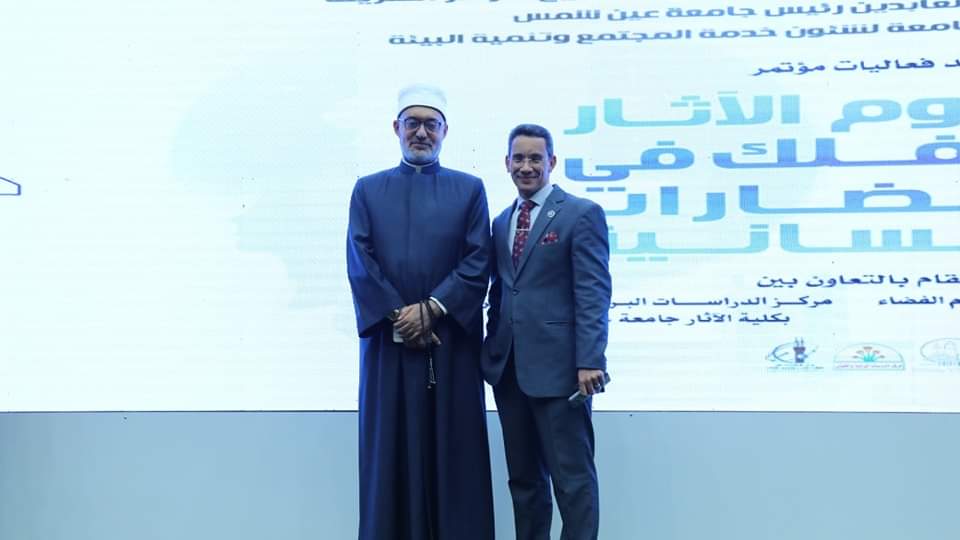 |
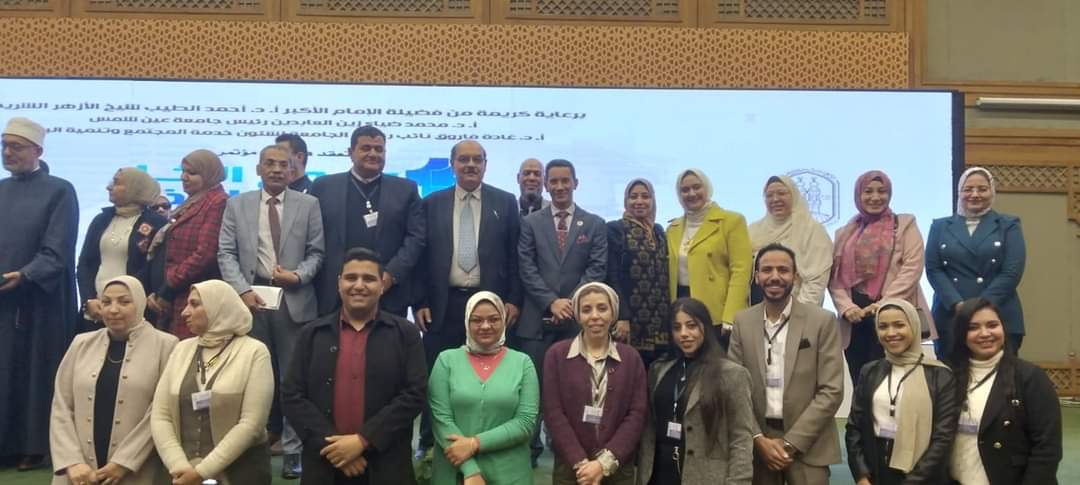 |
||
The closing session witnessed the announcement of the results and recommendations of the conference, which were as follows:
1. Highlighting the integration and interrelation between the Islamic sciences and the applied sciences, including astronomy and archaeology, and explaining their impact on ancient civilizations.
2. Revealing the effective influence of astronomy on ancient urban construction, through astronomy’s analysis of how planets and stars influence the design and organization of ancient buildings and archaeological sites.
3. Explaining the effectiveness of using artificial intelligence in archaeological and astronomical research and studies, in improving analysis, induction, and deduction; To provide a scientific vision about the universe, ancient cultures and civilizations.
4. Opening new horizons for more scientific meetings through conferences, seminars, training programs, workshops, lectures, educational tours, and virtual trips; To increase awareness of cultural and civilizational heritage and raise awareness of the importance of interdisciplinary studies between sciences.
5. Documenting the efforts made to protect archaeological and astronomical sites through field research, scientific studies, and making them available through educational and media platforms.
6. Building the historical, cultural and cultural identity of the people of the Islamic nation and confronting cultural alienation by documenting astronomical techniques in Islamic civilization and the efforts of the nation’s scholars and their contributions to the development of applied sciences and their impact on other civilizations.
7. Making available the scientific heritage of Islamic civilization in the field of applied sciences in general, and in the fields of archaeology and astronomy in particular, by uncovering primary sources, historical publications and manuscripts and examining them through research and study, in order to contribute to the understanding of science and knowledge and their development.
8. Emphasizing the importance of interdisciplinary studies and demonstrating the impact of integration between arts and sciences in building human civilizations.
9. Emphasizing the effective contribution of astronomy and archeology to the cultural and urban formation of humanity throughout history.
10. Documenting the historical role of Islamic civilization in establishing astronomical observatories in the Islamic world, as well as the genius of many of its scientists in studying astronomy and physical sciences.
11. The importance of integrating archeology and astronomy into educational curricula and directing science students researching laws and religions to study them; To eradicate cultural and historical illiteracy among the people of the Islamic nation.
12. Emphasizing the importance of studying archeology and astronomy in promoting interfaith dialogue, expanding the horizons of researchers and scholars, and opening a window on human cultures and civilizations.
13. Explaining the interest of Al-Azhar Al-Sharif, since its inception, in astronomy and archaeology, out of belief in the importance of these sciences in understanding the universe and the history of civilizations, and the necessity of cognitive integration between it and Egyptian universities.
14. Emphasizing the value of astronomy and its necessity in building contemporary human civilizations, and the necessity of working to develop this science and strengthen the knowledge integration between it and other Islamic and human sciences.
15. Emphasizing the value of archaeological science, which is a gateway to understanding ancient human civilizations and understanding the development of cultures, beliefs, customs and traditions over time.
16. Making the cultural and cognitive heritage of the social and political systems of ancient civilizations available to the people of the Islamic nation to understand and preserve their origins and roots.
17. Correcting misconceptions about antiquities and what is related to them, and explaining their historical and cultural importance in order to preserve the rights of future generations.
18. Emphasizing the necessity of working to establish educational and awareness programs in astronomy and archaeology for students and researchers; So that we help them understand the universe and its order, and then realize the greatness and ability of the Creator, and strengthen their belief in God, and provide them with the tools to understand religious texts correctly, away from the distortion of the extremists or the interpretation of the false.
19. The necessity of paying attention to the heritage and cognitive achievements left to us by predecessors in the sciences of astronomy and archaeology, and working to examine the traditional jurisprudence that mixed astronomical facts with religious myths, by forming specialized research teams that include astronomers, theologians, and historians, carefully studying these jurisprudence, and setting scientific standards to evaluate them.
20. This can be applied to the recovery of lost structures and the interpretation of their cultural and religious significance.
21. Emphasizing the importance of advancing astronomy and archaeology through:
- Building a database that documents the contributions of scientists in this field.
- Declaring the city of Cairo as an astronomical cultural capital bearing witness to civilizations.
- Promoting awareness of astronomical heritage, its history and its impact on human civilizations.
- Establishing integration between astronomy and archaeology through interdisciplinary studies.
- Highlighting research and studies centered around astronomy in human civilizations.
- Explaining the importance of studying astronomy in human civilizations, including: ancient Egyptian, ancient Iraqi, Greco-Roman, the civilization of the Arabian Peninsula, the Phoenician, North African civilization, and finally the Islamic civilization.
- Shedding light on astronomical archaeology, and reviewing the state’s efforts in preserving antiquities related to the movement of celestial bodies.
- Developing cultural tourism, and explaining the features of the scientific renaissance of body and machine sciences in light of Islamic and Arab civilization.
- Explaining the richness of the Arabic language in naming celestial bodies.
- Translating ancient scientific astronomical manuscripts.
- Building a database that frames the advancement of astronomy in the field of archaeological sciences.
22. Explaining the importance of astronomy and its impact on the formation of ancient religions, the growth of cultural thought in the civilizations of the ancient world, the history of astrology, astronomy and star calculations, the movement of celestial bodies and the purposes of Islamic law, the sciences of the body in Islamic civilization.
23. Statement of knowledge integration towards a sustainable economy of astronomical archaeological sites, and the role of astronomy in city planning and urbanism.
24. The necessity of exploiting astronomical antiquities to increase national income by encouraging tourism to archaeological sites related to astronomy, and the necessity of preserving, maintaining and restoring them.
25. Teaching the principles of astronomy to young people, because of their importance and their connection to commercial, agricultural, and navigational activities.


.svg)

